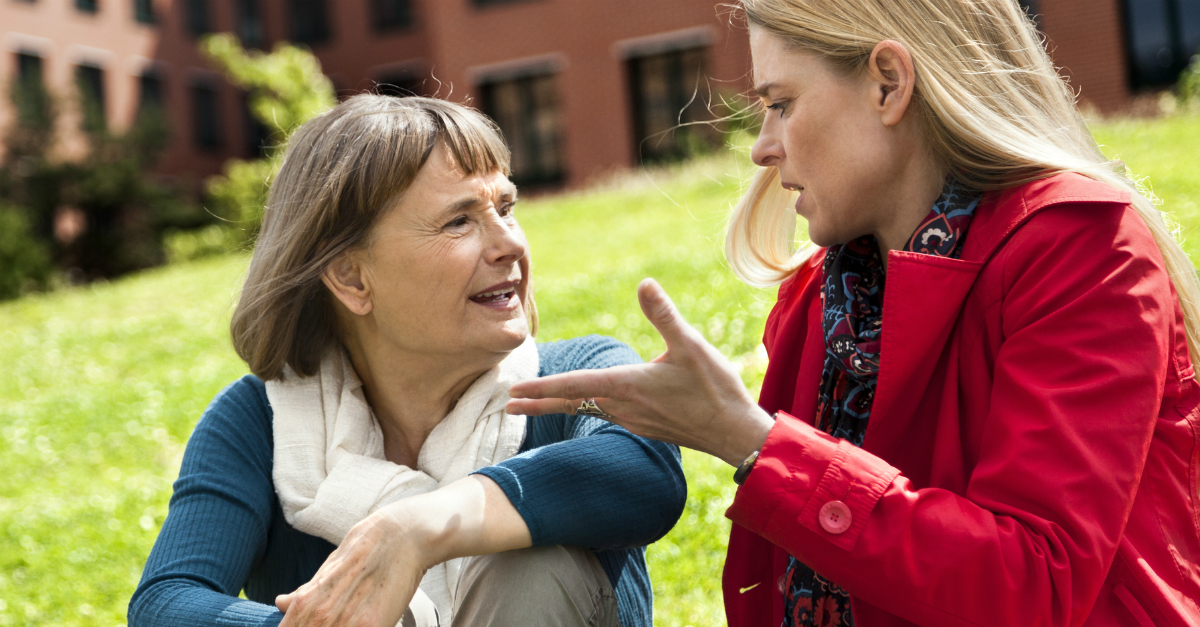
As an empty nester, I wonder where the time went. Kids grow up too fast. Life is a vapor before our eyes. Here today and gone tomorrow.
James 4:14 reminds us, "Why, you do not even know what will happen tomorrow. What is your life? You are a mist that appears for a little while and then vanishes."
If you're a parent, you already know you'll be parents to your children until the day you die. The journey of raising a family goes through so many hills and valleys—each a particular season. For me, the most challenging season of parenthood was the transition to the empty nest. I learned early on that worrying about my children does not lessen as they age. I can testify it gets worse.
As I reflect, I see how God uses our children to teach us how much he cares for and loves us unconditionally.
From the moment we place the tiny bundle in our arms, we see the joy this child will bring to our life. We imagine the milestone moments and life when our children are adults. By the time we enter the "nest," it's official; parenthood never turns out the way we expect it. Our adult children aren't as enamored with us as they were in pre-school. They don't need our help. They don't want our advice. And it's humbling to admit to myself, that as a parent—I don't have all the answers and never did.
I'm discovering while my adult children are wading through maturity, I've got growing to do myself.
Here are four essential things I learned from my adult children.
Photo Credit: ©GettyImages/eldadcarin
1. Let Them Decide What's Best for Them

Sometimes we think we know what's best for our children, but when they become adults, we don't.
After they've left the nest, we can't know what's best when we don't see the back story. We don't see their day-to-day problems or daily encounters. Young people today face tremendous challenges and stress we didn't have 40 years ago. We can't understand what we've never experienced.
And unless we are engaging in a language that resonates with them, we don't know their fears, hopes, and dreams.
Grown children want you to respect them as adults entitled to make choices. Which means we can't talk to them as they are kids. Did you eat? Why aren't you wearing a coat? Do you think it's wise to be out late in that neighborhood? These, and other similar phrases, are as annoying as the barking dog we can't keep quiet.
Our adult children need us to believe in them and show them we are confident they will make good choices without our interference. They may not always make the same decisions we would make in every scenario, and that's okay. Our children must fly and land as we did. And they will learn from their mistakes.
Our job is to support them as a quiet bystander. As toddlers, sometimes my children would run to confess a bump or tumble, only to run away in glee after I "kissed the boo-boo." In the same way, our adult kids are looking for acknowledgment of their pain and empathy for their feelings.
Sometimes they only want us to listen without offering advice, which leads to the next lesson.
Photo Credit: ©Getty Images/Comstock
2. Let Them Figure Things Out

Now my adult children are busy building their lives. As I watch from afar, it's tempting to allow that "Red Cross" feeling to rush and try to fix everything. Parental guidance is hard to give up. Painfully. In our minds, letting go is caring less. It's not, and I know it. So, I try to convince myself that I want them to be safe, and I want them to fly.
Still, I am on a scavenger hunt to find the balance between nosy and outright smothering my kids with questions and answers. It's tough. We want the best for our children, and most of us will do everything in our power to save our kids from the mistakes we made. We know best.
But do we?
I realize I can't force them to do anything. God gives us all free will, and just as God doesn't make me do anything as a parent, I can't expect my adult child to do as I say. Often problems that need a solution result from consequences that are a necessary part of learning.
We owe it to our children to allow them the high that comes from figuring it out as we did. We must step back and realize that some things can help, but other things hurt. Consequences are part of the learning—and will enable our children to teach their kids someday.
Photo Credit: ©GettyImages/XiXinXing
3. Let Them Claim Their Values

If you're like me, you wanted that same privilege after leaving home. But as an adult, it's hard to accept.
Just because you took your kids to church or started family traditions doesn't mean your children will adopt them. As adults, they will embark on their self-discovery and will decide their path.
No matter how hard we try, we can't force our ideas on our kids. We can only train them up in the way they should go and then let God be God. Continue to pray for your adult children and trust God to steer them correctly.
We will never build values in our kids by talking at them. Sincere, honest conversation filled with truth offers opportunities to build relationships that impart values. Also, just talking with them about random things. Sometimes they want to have conversations about nothing.
One thing I'm learning is to be more open-minded. Instead of opposing their ideas, I'm trying to understand what they find appealing about it. I've learned to be open-minded about everything from eyebrow piercing and tattoos to their choice of friends.
Sometimes I'm surprised that I'm learning new things. You can teach an old dog a new trick. Life is a process. Each leg of the trek will be a unique opportunity for growth and discovery.
Photo Credit: ©GettyImages/monkeybusinessimages
4. Accept That They Are Smarter Than Their Parents

Once, I had the answers—or at least my kids thought I did. Everything from why the sky is blue to "were there dinosaurs when you were a kid?"
The older I get, the more I realize that they have answers for me.
Sometimes it's helpful to ask them for advice to get a fresh perspective. They know more about technology, but they're also remarkably smart about living life. When I say "living," I mean that. I spent most of my younger years working hard so I could "live"—someday. They are working so they can live now.
Sometimes you jump in the ring and explore. I'm learning from them; it's okay not to be perfect. It's okay to say no, even to them. They are teaching me to find pleasures in simple things instead of waiting for big celebrations. I'm learning to play more and worry less. Slow down. Take chances and live more spontaneous.
Life isn't just about working toward retirement. Life is about enjoying moments now.
Photo Credit: ©GettyImages/Image Source